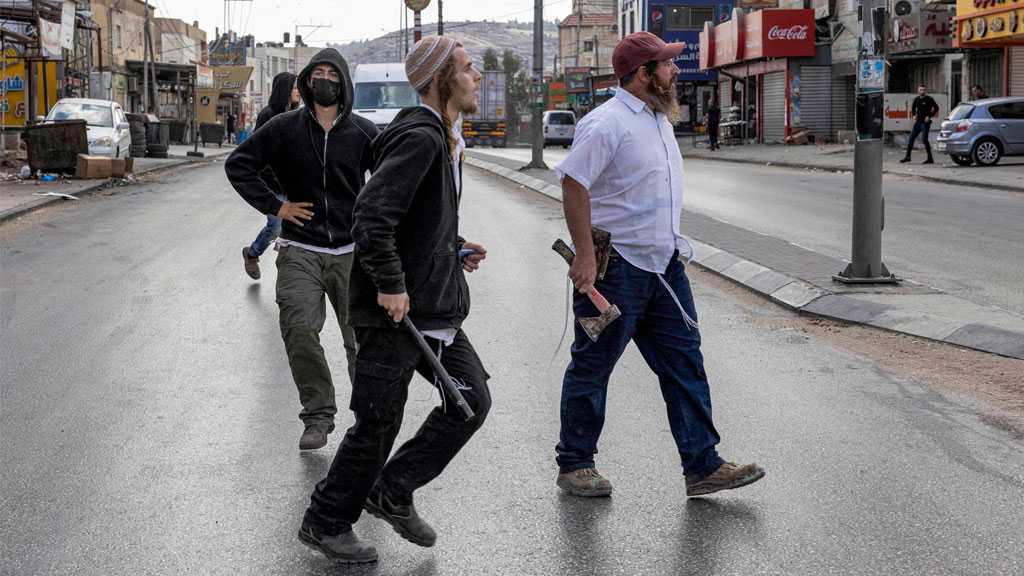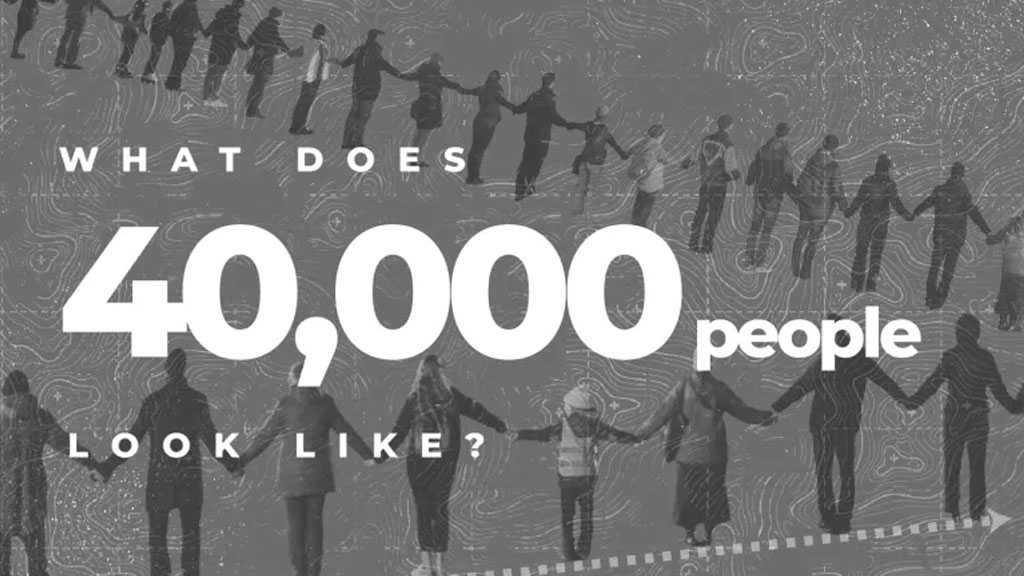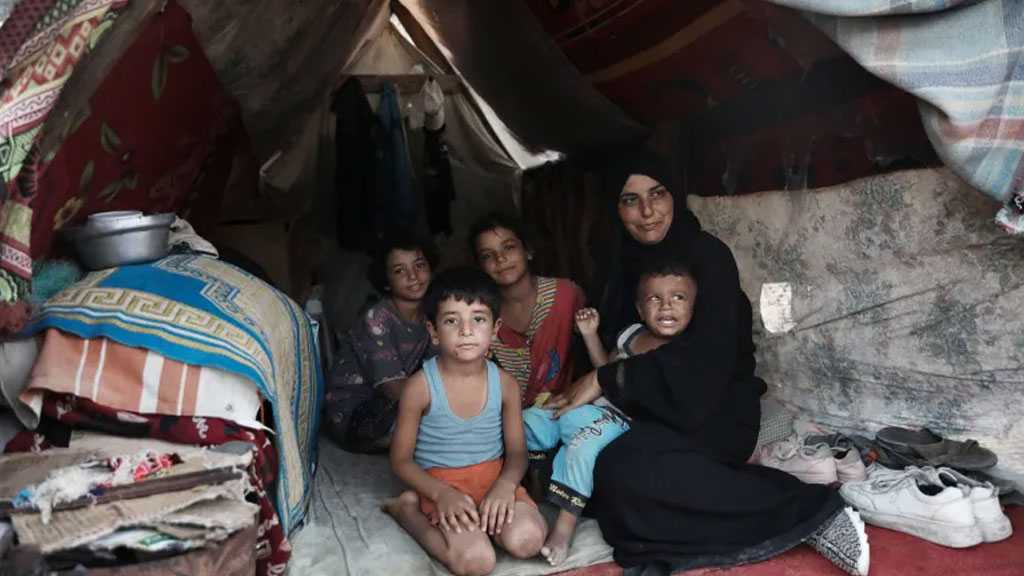14th of August: The Story of "Divine Victory"

Source: Al-Manar TV, 14-8-2008
The 14th of August is not just a date like any other. It is a remarkable day in the history of the Lebanese and Arab peoples as it briefs the story of the "Divine Victory".
In July 2006, Lebanon witnessed a severe "Israeli" aggression against its people, land and infrastructure, but the steadfastness of the honorable Lebanese and the bravery of its resistance fighters made him victoriously pass this stage.
"TRUTHFUL PLEDGE" SPED UP EXECUTION OF PRE-PLANNED US-"Israeli" PLOT
On the 12th of July 2006, the Islamic Resistance captured two "Israeli" occupation soldiers near the border with occupied Palestine and killed 8 others. Their operation was dubbed "The Truthful Pledge," after Hizbullah Secretary General Sayyed Hassan Nasrallah's public pledges over the prior year and a half to capture "Israeli" soldiers and swap them for Lebanese detainees still suffering in "Israeli" jails. The operation sped up the execution of what was later known as a covert US-"Israeli" plot to wage war on Lebanon and crush Hizbullah once and for all.
Two years have passed on the end of the war that saw more than 1,300 people killed, one third of whom are children and over 4000 other people were injured. 130,000 homes have been destroyed or damaged across the country, mainly in the south, the southern suburb of Beirut and the Bekaa Valley.
The announced "Israeli" objective was to destroy Hizbullah and its capabilities or what is called the "notion of resistance". However, there is a lot of information indicating that an "Israeli" attack on Lebanon had already been planned for and agreed upon by "Israel" and the United States, and that the capturing had surprised "Israel" and forced it to attack earlier than planned. This means that the attack would have occurred regardless of the "Truthful Pledge".
Moreover, on March 8, 2007, "Israeli" prime minister said that the strategy used in Second Lebanon War was drawn up months in advance. According to "Israeli" daily Haaretz, Olmert said that the plans had been in place for a long time, adding that he held several high-level meetings on the situation in Lebanon - the first on 8 January 2006. Olmert reportedly said that at a meeting in March he asked whether any plans existed about how "Israel" should react in the event of one of its soldiers being taken across northern border. He is said to have claimed that he looked at the various strategies tabled and decided that a plan, which Haaretz described as "moderate", of air strikes and a limited ground operation would be best.
Did Hizbullah know or expect that the capturing would lead to an all-out "Israeli" war on Lebanon? It is clear from Sayyed Nasrallah's press conference after the execution of Operation Truthful Pledge that his intention was to exchange them for Lebanese detainees through indirect negotiations. In a pre-recorded message on al-Manar Television on July 26, 2006, Sayyed Nasrallah said that Hizbullah was not aware of the "Israeli"-American plan to wage war on Lebanon until it actually happened. "When the capture took place, and without knowing it, the resistance foiled a more dangerous plan and a worst war scenario on Lebanon, on the Lebanese resistance, and on the people of Lebanon. The humiliation suffered by the Zionist enemy as a result of the capturing operation made it impossible for it to absorb this switch, and therefore moved up the attack which it had already prepared."
RESISTANCE FACES POLITICAL WAR INSIDE LEBANON
"Israel" eventually launched its war against Lebanon and the resistance. But Hizbullah had to fight another war; a political one launched by the then ruling bloc.
There were outstanding questions pertaining to the relationship between the resistance and the Lebanese state, how long the resistance is expected to last and whether it is a resistance movement or a militia.
In relation to the first issue, the Lebanese Government's policy statement on which it obtained the vote of confidence, states that "The Lebanese resistance is a true and natural expression of the national right of the Lebanese people to liberate its territory, defend its integrity, face up to "Israeli" aggression, threats, and designs on Lebanon, and liberate the remaining occupied Lebanese territories."
However, before the outset of the war, the government of Fouad Saniora described the resistance as a group of "adventurers," the same description given later by the so called "moderate leaders of the Arab world," including Saudi Arabia.
Saniora's government declared it had no knowledge of the capture operation and therefore held the Islamic Resistance full responsibility of the repercussions.
In his speech on the 12th of July, Sayyed Nasrallah warned the "Israeli" leadership against taking any foolish move against Lebanon and said "whole world will fail to return the captured soldiers back. Then can only return through indirect negotiations and exchange."
Hizbullah was already fighting a domestic political war aimed at disarming the resistance. The political war was backed by the West and the international community that issued UN resolution 1559. The resolution adopted by the United Nations Security Council on September 2, 2004 called upon Lebanon to establish its sovereignty over all of its land and called upon "foreign forces" to withdraw from Lebanon and to cease intervening in the internal politics of Lebanon. The resolution also called on all Lebanese and non-Lebanese militias to disband and declared support for a "free and fair electoral process". Hizbullah, a legitimate resistance force under the policy statement and not a militia, considered itself not intended in the resolution.
"Israel" was seeing Hizbullah's force growing bigger everyday.
Its humiliating withdrawal from most Lebanese territories in 2000 under the strikes of the resistance was "Israel's" first defeat in its history. Revenge was the only way to restore the broken image of "Israel's" "unbeatable army."
At that time, the US-"Israeli" scheme to establish a new Middle East in the region was starting to take practical effect. Afghanistan was invaded followed by Iraq. The pretext was always ready: fighting terrorism. This elastic expression saw the formation of a so called crescent of moderate Arab leaders to face the "axis of extremism" that included all resistance movements in region. Hizbullah topped the US-"Israeli" list. By crushing Hizbullah, the strongest resistance movement in the region, most, if not all remaining forces will tumble down one after the other. The Islamic resistance was in "Israel's" crosshairs and zero hour was set to get rid of this force once and for all.
In the midst of war, US secretary of State Condoleezza Rice arrived in Beirut to give fresh support to Saniora's government and the so called March 14 bloc to continue their political war against Hizbullah at a time parts of Lebanon were literarily demolished. "We are witnessing the birth pangs of a new Middle East," Rice summarized "Israel's" war against Lebanon.
"Israeli" ARMY DEFEATED BY RESISTANCE FIGHTERS
Despite the massive destruction, massacres and the environmental catastrophe caused by the "Israeli" aggression, the balance sheet of the Second Lebanon War certainly did not point to an "Israeli" Army victory, particularly after the first week of the war. Hizbullah's fire power, particularly its long, medium and short range missiles maintained high efficiency and gradually targeted "Israeli" settlements from northern occupied lands southwards, even threatening Tel Aviv. "Israel's" air force bank of targets dried out and the military command refrained from authorizing a land operation arguing that its soldiers were ill prepared. When the uncoordinated military command ultimately chose to launch a land operation, its soldiers and heavily protected and sophisticated Merkava tanks were dealt a serious blow in the Valley of Hojeir, the plain of Khiam, Taybeh and Odaissa.
"Israel" unpleasantly admitted the fact that its army did not achieve victory, not only because of the failed conduct of its leaders, but rather, because Hizbullah, according to the "Israelis" themselves, was more effective and determined. Despite of Washington's firm objection, the "Israeli" leadership sought a ceasefire without delay.
UN RESOLUTION 1701
On the 11th of August, The UN Security Council determined that the situation in Lebanon constitutes a threat to international peace and security. It adopted resolution 1701 that demanded a full cessation of hostilities in Lebanon. The resolution demanded "Israel" to withdraw all of its forces from Lebanon in parallel with Lebanese and UNIFIL soldiers deploying throughout the South. It banned sales or supply of arms and related materiel to Lebanon except what its Government authorizes. 1701 also demanded provision to the United Nations of all remaining maps of land mines in Lebanon in "Israel's" possession. The decision to end hostilities took effect on the 14th of August.
Sayyed Nasrallah said the UN resolution was not fair, but that Hizbullah would not stand in the way of its approval. "We will not be an obstacle to any decision taken by the Lebanese government. The resolution "is unjust and unfair because it held Hizbullah responsible for starting the aggression."
Hizbullah announced victory and Sayyed Nasrallah dedicated the Divine victory to the resistance fighters, martyrs, the detainees and the Lebanese.
The 14th of August is not just a date like any other. It is a remarkable day in the history of the Lebanese and Arab peoples as it briefs the story of the "Divine Victory".
In July 2006, Lebanon witnessed a severe "Israeli" aggression against its people, land and infrastructure, but the steadfastness of the honorable Lebanese and the bravery of its resistance fighters made him victoriously pass this stage.
"TRUTHFUL PLEDGE" SPED UP EXECUTION OF PRE-PLANNED US-"Israeli" PLOT
On the 12th of July 2006, the Islamic Resistance captured two "Israeli" occupation soldiers near the border with occupied Palestine and killed 8 others. Their operation was dubbed "The Truthful Pledge," after Hizbullah Secretary General Sayyed Hassan Nasrallah's public pledges over the prior year and a half to capture "Israeli" soldiers and swap them for Lebanese detainees still suffering in "Israeli" jails. The operation sped up the execution of what was later known as a covert US-"Israeli" plot to wage war on Lebanon and crush Hizbullah once and for all.
Two years have passed on the end of the war that saw more than 1,300 people killed, one third of whom are children and over 4000 other people were injured. 130,000 homes have been destroyed or damaged across the country, mainly in the south, the southern suburb of Beirut and the Bekaa Valley.
The announced "Israeli" objective was to destroy Hizbullah and its capabilities or what is called the "notion of resistance". However, there is a lot of information indicating that an "Israeli" attack on Lebanon had already been planned for and agreed upon by "Israel" and the United States, and that the capturing had surprised "Israel" and forced it to attack earlier than planned. This means that the attack would have occurred regardless of the "Truthful Pledge".
Moreover, on March 8, 2007, "Israeli" prime minister said that the strategy used in Second Lebanon War was drawn up months in advance. According to "Israeli" daily Haaretz, Olmert said that the plans had been in place for a long time, adding that he held several high-level meetings on the situation in Lebanon - the first on 8 January 2006. Olmert reportedly said that at a meeting in March he asked whether any plans existed about how "Israel" should react in the event of one of its soldiers being taken across northern border. He is said to have claimed that he looked at the various strategies tabled and decided that a plan, which Haaretz described as "moderate", of air strikes and a limited ground operation would be best.
Did Hizbullah know or expect that the capturing would lead to an all-out "Israeli" war on Lebanon? It is clear from Sayyed Nasrallah's press conference after the execution of Operation Truthful Pledge that his intention was to exchange them for Lebanese detainees through indirect negotiations. In a pre-recorded message on al-Manar Television on July 26, 2006, Sayyed Nasrallah said that Hizbullah was not aware of the "Israeli"-American plan to wage war on Lebanon until it actually happened. "When the capture took place, and without knowing it, the resistance foiled a more dangerous plan and a worst war scenario on Lebanon, on the Lebanese resistance, and on the people of Lebanon. The humiliation suffered by the Zionist enemy as a result of the capturing operation made it impossible for it to absorb this switch, and therefore moved up the attack which it had already prepared."
RESISTANCE FACES POLITICAL WAR INSIDE LEBANON
"Israel" eventually launched its war against Lebanon and the resistance. But Hizbullah had to fight another war; a political one launched by the then ruling bloc.
There were outstanding questions pertaining to the relationship between the resistance and the Lebanese state, how long the resistance is expected to last and whether it is a resistance movement or a militia.
In relation to the first issue, the Lebanese Government's policy statement on which it obtained the vote of confidence, states that "The Lebanese resistance is a true and natural expression of the national right of the Lebanese people to liberate its territory, defend its integrity, face up to "Israeli" aggression, threats, and designs on Lebanon, and liberate the remaining occupied Lebanese territories."
However, before the outset of the war, the government of Fouad Saniora described the resistance as a group of "adventurers," the same description given later by the so called "moderate leaders of the Arab world," including Saudi Arabia.
Saniora's government declared it had no knowledge of the capture operation and therefore held the Islamic Resistance full responsibility of the repercussions.
In his speech on the 12th of July, Sayyed Nasrallah warned the "Israeli" leadership against taking any foolish move against Lebanon and said "whole world will fail to return the captured soldiers back. Then can only return through indirect negotiations and exchange."
Hizbullah was already fighting a domestic political war aimed at disarming the resistance. The political war was backed by the West and the international community that issued UN resolution 1559. The resolution adopted by the United Nations Security Council on September 2, 2004 called upon Lebanon to establish its sovereignty over all of its land and called upon "foreign forces" to withdraw from Lebanon and to cease intervening in the internal politics of Lebanon. The resolution also called on all Lebanese and non-Lebanese militias to disband and declared support for a "free and fair electoral process". Hizbullah, a legitimate resistance force under the policy statement and not a militia, considered itself not intended in the resolution.
"Israel" was seeing Hizbullah's force growing bigger everyday.
Its humiliating withdrawal from most Lebanese territories in 2000 under the strikes of the resistance was "Israel's" first defeat in its history. Revenge was the only way to restore the broken image of "Israel's" "unbeatable army."
At that time, the US-"Israeli" scheme to establish a new Middle East in the region was starting to take practical effect. Afghanistan was invaded followed by Iraq. The pretext was always ready: fighting terrorism. This elastic expression saw the formation of a so called crescent of moderate Arab leaders to face the "axis of extremism" that included all resistance movements in region. Hizbullah topped the US-"Israeli" list. By crushing Hizbullah, the strongest resistance movement in the region, most, if not all remaining forces will tumble down one after the other. The Islamic resistance was in "Israel's" crosshairs and zero hour was set to get rid of this force once and for all.
In the midst of war, US secretary of State Condoleezza Rice arrived in Beirut to give fresh support to Saniora's government and the so called March 14 bloc to continue their political war against Hizbullah at a time parts of Lebanon were literarily demolished. "We are witnessing the birth pangs of a new Middle East," Rice summarized "Israel's" war against Lebanon.
"Israeli" ARMY DEFEATED BY RESISTANCE FIGHTERS
Despite the massive destruction, massacres and the environmental catastrophe caused by the "Israeli" aggression, the balance sheet of the Second Lebanon War certainly did not point to an "Israeli" Army victory, particularly after the first week of the war. Hizbullah's fire power, particularly its long, medium and short range missiles maintained high efficiency and gradually targeted "Israeli" settlements from northern occupied lands southwards, even threatening Tel Aviv. "Israel's" air force bank of targets dried out and the military command refrained from authorizing a land operation arguing that its soldiers were ill prepared. When the uncoordinated military command ultimately chose to launch a land operation, its soldiers and heavily protected and sophisticated Merkava tanks were dealt a serious blow in the Valley of Hojeir, the plain of Khiam, Taybeh and Odaissa.
"Israel" unpleasantly admitted the fact that its army did not achieve victory, not only because of the failed conduct of its leaders, but rather, because Hizbullah, according to the "Israelis" themselves, was more effective and determined. Despite of Washington's firm objection, the "Israeli" leadership sought a ceasefire without delay.
UN RESOLUTION 1701
On the 11th of August, The UN Security Council determined that the situation in Lebanon constitutes a threat to international peace and security. It adopted resolution 1701 that demanded a full cessation of hostilities in Lebanon. The resolution demanded "Israel" to withdraw all of its forces from Lebanon in parallel with Lebanese and UNIFIL soldiers deploying throughout the South. It banned sales or supply of arms and related materiel to Lebanon except what its Government authorizes. 1701 also demanded provision to the United Nations of all remaining maps of land mines in Lebanon in "Israel's" possession. The decision to end hostilities took effect on the 14th of August.
Sayyed Nasrallah said the UN resolution was not fair, but that Hizbullah would not stand in the way of its approval. "We will not be an obstacle to any decision taken by the Lebanese government. The resolution "is unjust and unfair because it held Hizbullah responsible for starting the aggression."
Hizbullah announced victory and Sayyed Nasrallah dedicated the Divine victory to the resistance fighters, martyrs, the detainees and the Lebanese.




